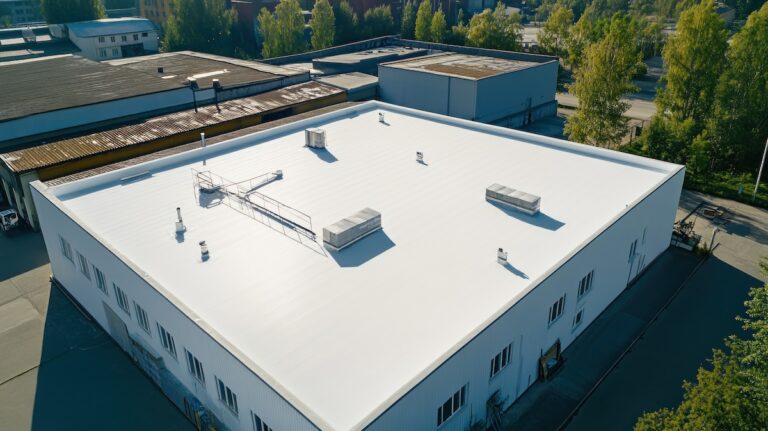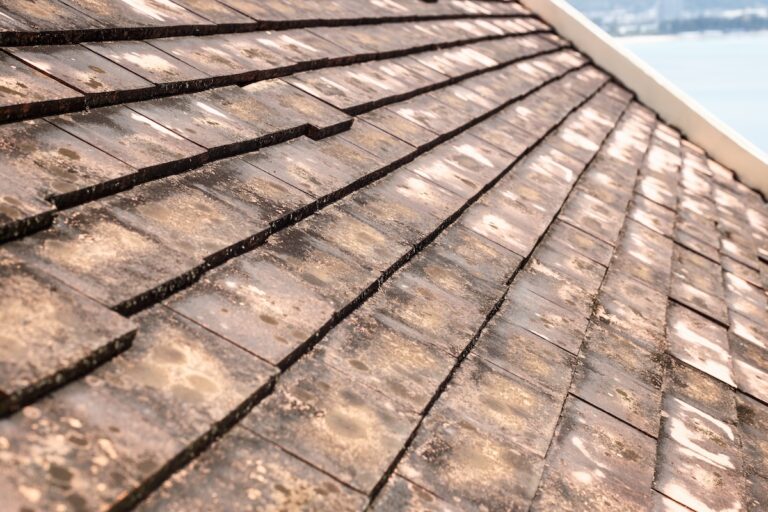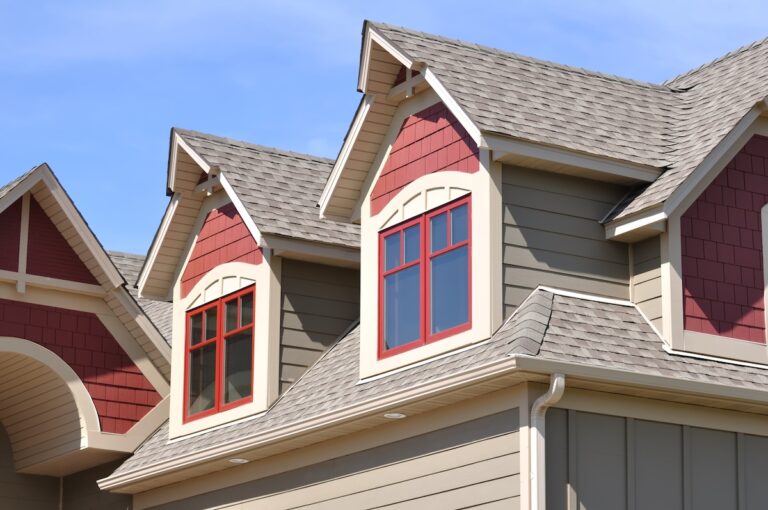Your home is one of the most significant investments you’ll make, so keeping it protected is a top priority. A high-quality roof is an essential part of that protection, shielding everything and everyone inside from:
- Harsh weather
- Water damage
- Other external threats
But what happens when something goes wrong with your roof? This is where a roof warranty comes into play.
Understanding your roof warranty is vital for peace of mind and long-term protection. Whether you’re installing a new roof or maintaining an existing one, this guide will walk you through the ins and outs of roof warranties, helping you make informed decisions every step of the way.
What Is a Roof Warranty?
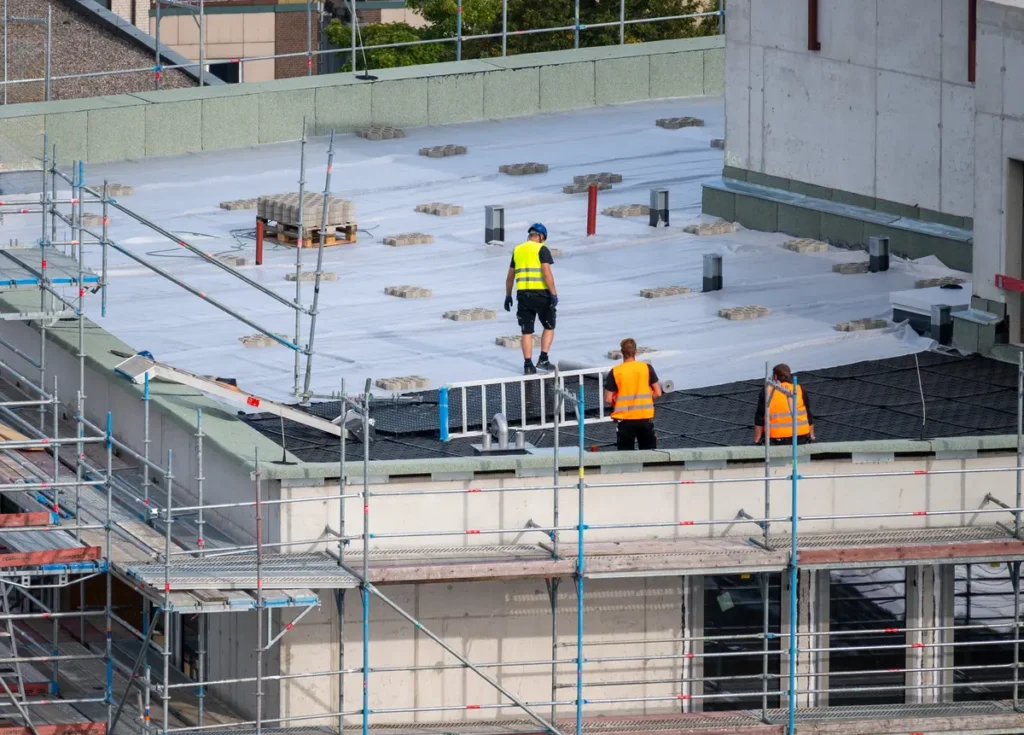
A roof warranty is essentially a contract that provides homeowners with protection against potential issues related to the roofing system. It ensures that the homeowner isn’t left to deal with unexpected roof repairs or replacements entirely on their own.
But not all warranties are created equal, and the details of each policy can vary widely. It’s crucial to familiarize yourself with the type of roof warranty you have or are considering, so you know exactly what level of protection you’re getting.
3 Types of Roof Warranties
There are generally three main types of roof warranties homeowners should know about, each offering a different level of coverage.
1. Manufacturer’s Warranty
This type of warranty comes directly from the roofing material manufacturer. It covers defects in the products themselves, such as shingles, tiles, or underlayment, and ensures they will perform as promised for a specific amount of time. Manufacturer’s warranties typically last between 20 to 50 years depending on the material and brand.
What’s Covered:
- Shingle defects (e.g., premature deterioration or granule loss)
- Insufficient durability of the roofing material under normal conditions
What’s NOT Covered:
- Installation errors
- Damage caused by poor attic ventilation or external factors like storms
2. Workmanship Warranty
This warranty is provided by the roofing contractor and specifically covers the quality of their installation work. Even top-quality materials won’t perform well if not installed properly, which makes this type of warranty crucial.
What’s Covered:
- Mistakes during the installation process
- Issues with flashing, sealing, or underlayment caused by poor workmanship
What’s NOT Covered:
- Defects in roofing materials themselves (covered by the manufacturer)
- Damage caused by weather events, aging, or lack of maintenance
Workmanship warranties typically last anywhere from 1 to 10 years, although premium contractors might offer even longer coverage.
3. Extended or Full-System Warranty
Some manufacturers and contractors offer extended warranties that provide broader coverage, often combining material and workmanship protection. These are commonly known as full-system warranties and may also include extras like flashing systems, vents, and adhesives.
What’s Covered:
- Defects in roofing materials
- Installation errors
- Enhanced protection on additional components like flashing or vents
Extended warranties often last 20 years or longer, offering the most comprehensive coverage available.
Why You Need a Roof Warranty
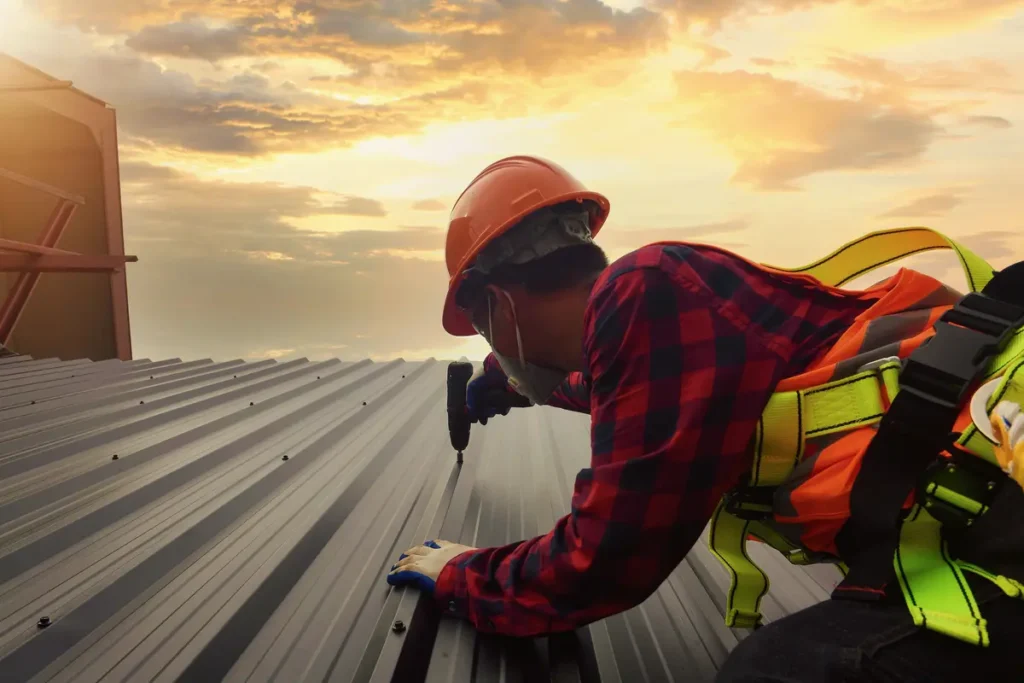
It might be tempting to skip the details on warranties, especially when budgeting or managing the stress of a roof replacement, but having a solid roof warranty isn’t just about peace of mind—it’s a smart financial decision.
Here’s why a roof warranty is essential for homeowners:
- Cost Savings: Repairs or replacements for roofing issues can be expensive. A warranty helps cover these costs, reducing the financial burden.
- Guaranteed Workmanship: Knowing that installation is backed by a warranty ensures you can trust the contractor to provide quality work. If something goes wrong, you’re covered.
- Property Value: A transferable roof warranty can make your home more attractive to potential buyers. It’s a sign of your commitment to maintaining the property.
- Protection Against Defects: While rare, manufacturing defects can occur. A warranty ensures you’re not left on the hook for materials that don’t perform as promised.
- Long-Term Durability: Roof warranties incentivize regular maintenance and inspections, which, in turn, extend the lifespan of your roof and ensure it stays in excellent condition.
Common Terms You Should Know
When reviewing a roof warranty, it’s easy to get lost in the legal jargon. Understanding some of the key terms will empower you to make the best decision for your home. Here’s a quick breakdown of commonly used warranty terms:
- Proration: Some warranties are prorated, meaning the coverage decreases over time. This is crucial to know when comparing policies.
- Transferability: If you sell your home, some warranties can be transferred to the new owner, while others cannot.
- Exclusions: Factors or damages not covered by the warranty, such as improper maintenance or storm damage.
- Claims Process: The steps you need to take to file a claim and have it approved. Ensure you know the details so you can act quickly if needed.
- Warranty Period: The length of time your warranty remains active. Each warranty type will have a different time frame, so be sure to confirm this.
What to Look for When Choosing a Roof Warranty
All roof warranties aren’t created equal, and choosing the right one depends on your needs, your home, and your budget. Here’s what to consider when evaluating warranty options:
- Length of Coverage: Does the warranty provide protection for enough time to give you peace of mind? A longer warranty can be beneficial, particularly with premium materials.
- Non-Prorated Coverage: Opt for non-prorated warranties when possible. These offer full coverage for materials and/or labor for the entire length of the policy, instead of decreasing over time.
- Transferability: If you plan to sell your home, a transferable warranty can add considerable value for potential buyers.
- Exclusions: Make sure you understand any exclusions and confirm they won’t leave you paying out-of-pocket for common issues.
- Reputable Contractor: Choosing a contractor with a solid workmanship warranty and excellent reputation ensures you’re in safe hands.
Tips for Maintaining Your Roof Warranty
Once you’ve chosen your warranty, there are steps you’ll need to take to maintain its validity. Many warranties have conditions, and falling short can void them entirely.
Follow these tips to keep your roof warranty intact:
Keep Records
Document all installation, maintenance, and repair work performed on your roof. Receipts, inspection reports, and pictures can all serve as proof if you need to make a claim.
Schedule Regular Inspections
Routine inspections by a professional help identify small issues before they become major problems. Plus, they’re often a condition of your warranty.
Perform Maintenance
Keep your roof clean of debris, trim overhanging branches, and clear your gutters. Lack of maintenance can cause premature damage that voids warranties.
Hire Certified Professionals Only
DIY repairs or hiring unlicensed contractors can nullify your workmanship and material warranties. Use qualified professionals every time.
Check After Severe Weather
If your area experiences storms or other significant weather events, inspect your roof for damage. Report any potential issues to your contractor or manufacturer as soon as possible.
Understand the Claims Process
Take time to familiarize yourself with the steps involved in filing a warranty claim. Respond quickly and provide thorough documentation to streamline the process.
Working With a Trusted Roofing Company
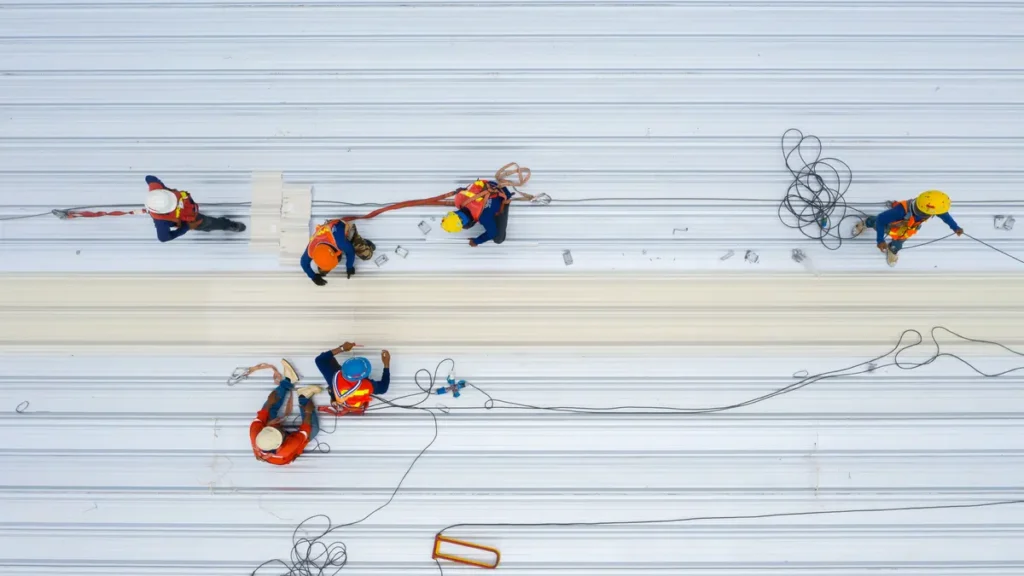
Navigating roof warranties can seem overwhelming, but the right roofing contractor simplifies the process. A trustworthy contractor ensures top-notch workmanship, clearly explains available warranties, and helps you choose the best option for your needs.
At G. Cannon, we pride ourselves on reliability, transparency, and professionalism. Our dedicated team works with you to ensure your roofing experience exceeds expectations, from installation to warranty guidance and maintenance.
Need help protecting your roof? Take the first step with G. Cannon’s expert team.
Contact us today to discuss your roofing needs and learn more about the warranties we offer. Together, we’ll ensure your home stays safe and secure for the long haul.


